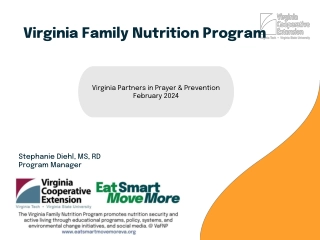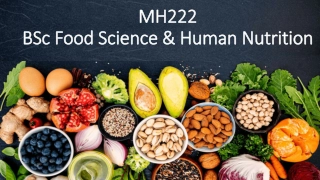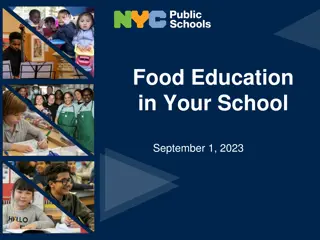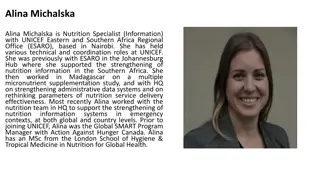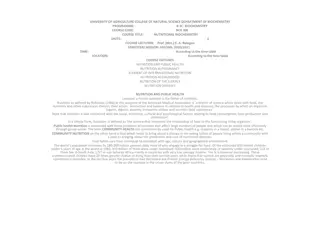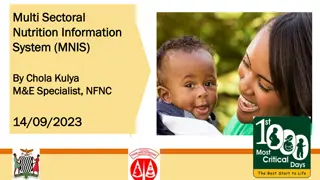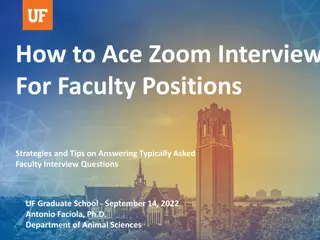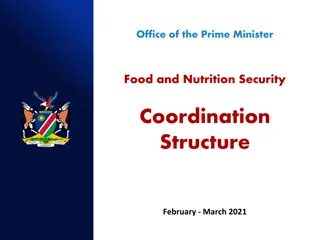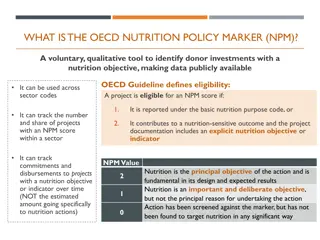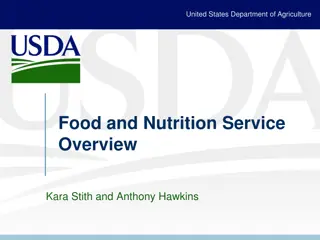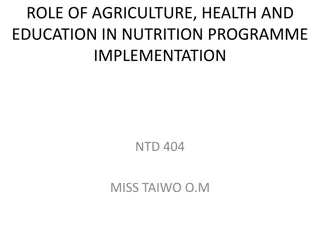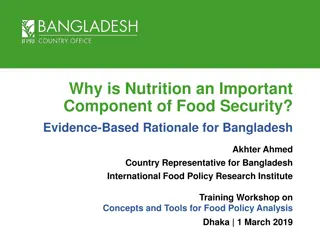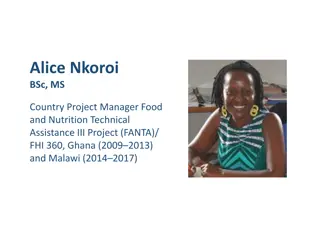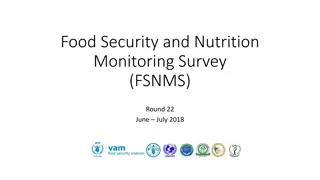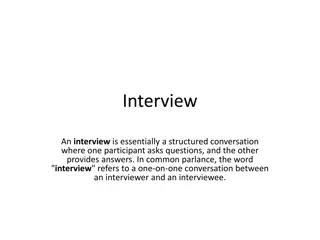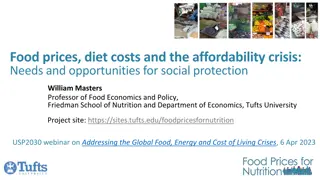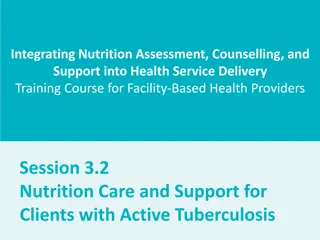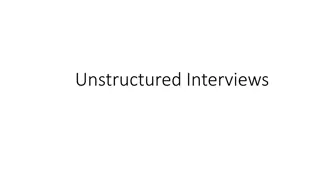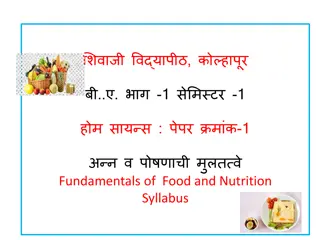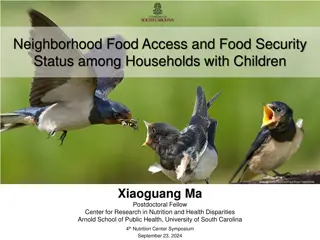Interviews with Professionals in Global Food Security & Nutrition
The course explores employability in MSc Global Food Security & Nutrition through interviews with professionals and a collaborative approach. It includes examples of interviews, embedding employability, program background, and personal statements from applicants across various fields. The curriculum incorporates academic study skills, career information, LinkedIn presence, and guidance from the program team. Activities focus on sustainable food production and enhancing students' employability skills.
Download Presentation

Please find below an Image/Link to download the presentation.
The content on the website is provided AS IS for your information and personal use only. It may not be sold, licensed, or shared on other websites without obtaining consent from the author.If you encounter any issues during the download, it is possible that the publisher has removed the file from their server.
You are allowed to download the files provided on this website for personal or commercial use, subject to the condition that they are used lawfully. All files are the property of their respective owners.
The content on the website is provided AS IS for your information and personal use only. It may not be sold, licensed, or shared on other websites without obtaining consent from the author.
E N D
Presentation Transcript
Student Skills and Employability theme: Use of Interviews of professionals in course materials Sharing Good Practice Event 6thFeb 2020 Dr Elaine Bannerman (Programme Coordinator) Dr Fiona Borthwick (Programme Director) MSc Global Food Security & Nutrition
Outline Employability MSc Global Food Security & Nutrition (online) Background Multi-dimensional, collaborative approach Examples of interviews with professionals HEA Embedding Employability framework What next? Summary
Employability a set of achievements skills, understandings and personal attributes that make graduates more likely to gain employment and be successful in their chosen occupations, which benefits themselves, the workforce, the community and the economy (Yorke and Knight, 2006, p.8 Cited in: Artess, Hooley, Mellors-Bourne, 2017)
MSc Global Food Security Nutrition (online) Sept 2018 (n=1) Sept 2019 (n=18) Applicants agriculture, economics, environment, community development, catering, nutrition Sub-Saharan Africa, US, Europe, Asia, Australia Personal statements: new career / development
MSc Global Food Security & Nutrition (online) Multi-dimensional, collaborative approach Curriculum > Courses Academic Study Skills for Postgraduate Taught students > Careers Info and Live Sessions Digital Footprints LinkedIn Careers Service Programme Team & GFSN Base course Personal Tutor
Sustainable Food Production (20 credit) Three interviews with professionals working in different areas of sustainable food production All three interviews provide subject specific content as well as a brief overview of how they got to where they are/ employment over time Follow-on discussion board activities allow students to consider or critically appraise the content presented Currently activities do not specifically focus on employability
Interview with Peter Debella, Sugar technologist Insight into different roles/ employment opportunities within the field International perspective/ global opportunities Career ideas Follow-on discussion activity enables development of critical analysis skills. Opportunity for potential reflection and reflexivity regarding learners own values & beliefs, their social and cultural awareness and consideration of international/ global differences as reviewed HEA Greenbank Cited in : Artess, Hooley, Mellors-Bourne, 2017) (p.21, & Greenbank Values )
Interview with Laszlo Mathe Interview emphasizes career progression: employment with a NGO, to auditing, to working in production industries, Illustrates Adaptability ones own employability can develop over time; being open, flexible and adapting to change is important for this Potential to evaluate own beliefs, values and behaviours; better understand the values, beliefs and behaviours of others reflexivity helps see opportunities not initially apparent (Greenbank Cited in : Artess, Hooley, Mellors-Bourne, 2017)
Interview with Pete Ritchie, Whitmuir Organic Farm Topic: Alternative food production methods organic farming . An example of success where challenges exist along the way Self-belief & achievement of personal goals Effective transitions to employment include: decision- making capabilities, values, self-belief/ self-efficacy, proactivity and confidence. (Turner 2014 Cited in: Artess et al., 2017)
HEA Embedding Employability Framework Mapping provision Planning Prioritising Evaluating impact Audit cycle
What next ? Reflection and reflexive activities with articulation Personal development planning Additional extra- & co-curricula opportunities Measuring impact Evaluation and Stakeholders feedback
Summary Interviews of well-known professionals in the field have the potential to Provide content on specific topics Increase awareness of employability Provide potential role models Foster a sense of relevance Provide motivation to be in the field Develop critical analysis skills Increase self, social and cultural awareness Challenge own beliefs, values, behaviours
References Artess,J., Hooley T., Mellors-Bourne R. (2017) Employability: A review of the literature 2012- 2016 . Higher Education Academy. Higher Education Academy, 2015. The framework for embedding employability in higher education.


